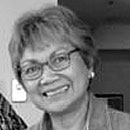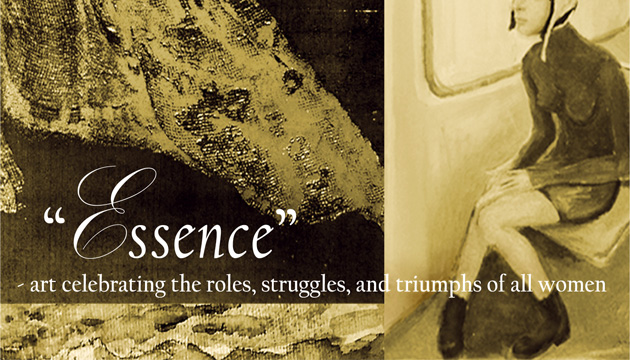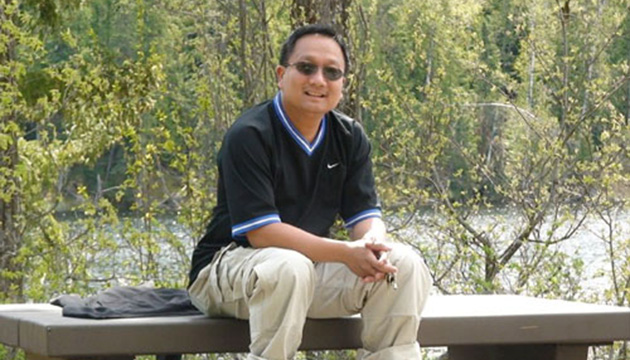The Vatican’s Jura et Bona defines “euthanasia", or "mercy killing" as "an action or an omission which of itself or by intention causes death, in order that all suffering may in this way be eliminated."
After years of debate and controversial court cases, Justin Trudeau’s Liberal government passed Bill C-14, decriminalizing doctor assisted suicide in Canada because to criminalize it was against Canada’s Charter of Rights and Freedoms. The bill received Royal assent in June 2016 and set out a regime to regulate who could obtain “medical assistance in dying.” Immediately, it exposed the deep divisions that exist within the Catholic Church in Canada.
The bishops of Canada disagree on fundamental issues such as whether individuals involved in medically assisted death can receive certain Sacraments and a Catholic funeral. Some religious experts say the schism is the product of Pope Francis's emphasis on tolerance and compassion.
Doctor assisted-suicide is a “morally great evil.”
In response to the new law on medically assisted death, the Catholic bishops of Alberta and the Northwest Territories issued a document entitled “Guidelines for the Celebration of the Sacraments with Persons & Families Considering or Opting for Death by Assisted Suicide or Euthanasia.” They instructed priests under their jurisdiction to deny the Sacraments of Confession (Penance) and Extreme Unction (Anointing of the Sick) and a Catholic funeral, in certain circumstances, to an individual who helped someone die or who died themselves by assisted suicide.
In a joint statement, the Catholic bishops of Alberta said “This is not a matter of "medical assistance in dying." What is at issue here is state-sponsored killing of the innocent. Killing is not medicine. This has no place in a just and ethical society.”
Similar statements of concern were issued by the Assembly of Quebec bishops, Archbishop J. Michael Miller of Vancouver and Reverend Douglas Crosby, Bishop of Hamilton and President of the Canadian Conference of Catholic Bishops.
On August 11, 2016, Archbishop Michael Miller, as shepherd of over 400,000 Catholics in Greater Vancouver and the Lower Mainland, reiterated the church’s teaching on euthanasia and assisted suicide as a “grave violation of the Commandment: “You shall not kill.” He clarified the false impression that the Catholic Church teaches that one must sustain and prolong life under all circumstances and at any cost. He explained that “every person has a fundamental right to refuse procedures or treatments considered “extraordinary” or “disproportionate”; that is, overly burdensome, painful, or of dubious effectiveness in restoring health. Likewise, the individual has the right to discontinue treatment under the same conditions.”
Archbishop Terrence Prendergast of Ottawa warned Catholics that they may be denied the Sacrament of Extreme Unction and a Catholic funeral if their death is a result of doctor-assisted suicide. “I think we have to be clear that the Church cannot condone this. It’s clearly contrary to the moral teaching of everybody,” he said. He called doctor assisted-suicide a “morally great evil.”
On the other hand
Cardinal Gerald Lacroix of Quebec City and Archbishop Christian Lepine of Montreal both reacted differently to the new law, declaring that they would not give specific guidelines to their priests about refusing the funeral services to the people who requested assisted-suicide. “The Catholic Church accompanies people in every step of their life,” said Cardinal Lacroix, “We do that in dialogue with every person and every family that wishes to be accompanied.”
Bishop Douglas Crosby OMI, the bishop of Hamilton and president of the Conference of the Catholic Bishops of Canada (“CCBC”) strongly criticized Bill C-14, stating on behalf of the CCCB: “Physician-assisted suicide is an affront to what is most noble, most precious in the human endeavour and a grave injustice and violation of the dignity of every human person whose natural and inherent inclination is indeed the preservation of life.” Despite those strong words, Bishop Crosby indicated that he did not “foresee that the CCCB will be putting out guidelines” setting out a uniform response from the Catholic Church in Canada to the new law.
“How to respond to a person who asks for euthanasia is problematic for a Catholic pastoral minister,” said Bishop Noël Simard of the diocese of Valleyfield, Quebec at a provincial workshop held December 1, 2016 at the Cathedral of the Holy Family in Saskatoon. “When we are facing a complex situation, there is no black and white. There is a lot of grey zone, and it is where mercy can be expressed – in the grey zone. And I think we are called to express the mercy of God.”
Dying With Dignity Canada
Dying with Dignity Canada (DWD Canada) is the national not-for-profit organization committed to improving quality of dying, protecting end-of-life rights, and helping Canadians avoid unwanted suffering. According to DWD Canada, medical-assistance in death (MAiD) is not assisted suicide or mercy killing or euthanasia but a safe, compassionate choice for individuals facing the prospect of a horrific death. DWD presents these facts on end-of-life choice so people can decide for themselves:
Allowing assisted dying respects a patient's right to choose. The Supreme Court struck down the laws forbidding physician assisted dying because they were unconstitutional and unfairly restricted individual choice. Access to aid in dying will give Canadians further control over their care and, ultimately, their lives.
Canadians want choice. More than eight in 10 Canadians support physician assisted dying. Commissioned by DWD Canada, a 2014 Ipsos Reid poll opinion poll showed that 84 per cent of Canadians believe gravely ill patients should have the right to end their lives with the help of a doctor.
Making assisted dying illegal doesn’t stop it. Each year a handful of gravely ill Canadians travel to Switzerland for a medically assisted death. The cost — $20,000 to $30,000 including flights and accommodation — puts this option out of reach for most Canadians. At home, laws banning assisted dying and voluntary euthanasia have led Canadians with catastrophic diagnoses to end their own lives, sometimes violently and often prematurely. These tragedies devastate families and scar first responders. It’s time to stop this unnecessary trauma.
The safeguards work. We can provide choice for competent Canadians and protect the most vulnerable members of our society. International research has repeatedly concluded that legalized assisted dying doesn’t threaten vulnerable groups such as children, the very elderly, the poor, people with disabilities and the mentally ill. This conclusion was upheld by the Supreme Courts of B.C. and was a key factor in the Supreme Court of Canada’s decision to decriminalize physician assisted dying.
Palliative care is not enough. Palliative care is critical, but alone it is not enough. In Oregon, nine in 10 people who used that state's Dying with Dignity legislation were enrolled in a hospice program. That’s because there is some suffering that only death can end.
Assisted dying doesn’t hurt palliative care. Jurisdictions, where end-of-life choice is legal, are often global leaders in end-of-life care. Oregon, Washington and Vermont were the first American states to legalize assisted dying. They also lead the U.S. in terms of access to palliative care.
Physician-assisted dying is good for end-of-life healthcare. In places where assisted dying is legal, doctors are more likely to discuss end-of-life care with patients and their families. Legal choice in dying also forces doctors to learn more about a broad range of end-of-life options.
Offering physician-assisted dying is all about compassion. Forcing Canadians to endure unwanted, intolerable suffering is inhumane and wrong. As a compassionate society, we must offer information and choices to those who face the prospect of a horrific death.
Who is eligible for medical assistance in dying under the new law?
A Christian argument for medically assisted death justifies self-aware assisted death as a choice based on one’s free will: a God-given gift to make one’s own moral decisions and be responsible for them.
Under Bill C-14, two independent health care professionals need to evaluate an individual in order to determine whether he/she qualifies for MAID. To qualify, an individual must be 18 years or older and meet all of the following eligibility criteria:
• be eligible for health services funded by the federal government, or a province or territory
o generally, visitors to Canada are not eligible for medical assistance in dying;
• be mentally competent and capable of making health care decisions for oneself;
• have a grievous and irremediable medical condition and death is imminent;
• make a voluntary request for medical assistance in dying that is not the result of outside pressure or influence;
• give informed consent to receive medical assistance in dying.
Since Bill C-14 became law in 2016, about 2,000 Canadians have chosen to die that way. Statistics did not indicate their religion. But for practicing Catholics who believe last rites cleanse the soul of sin in preparation for eternal life in heaven, a proper funeral is far more than an end-of-life celebration. For the faithful questioning whether those final sacraments of Penance and Extreme Unction are available to a loved one who has chosen a medically assisted death, the answer may depend on whom in the church they ask.













